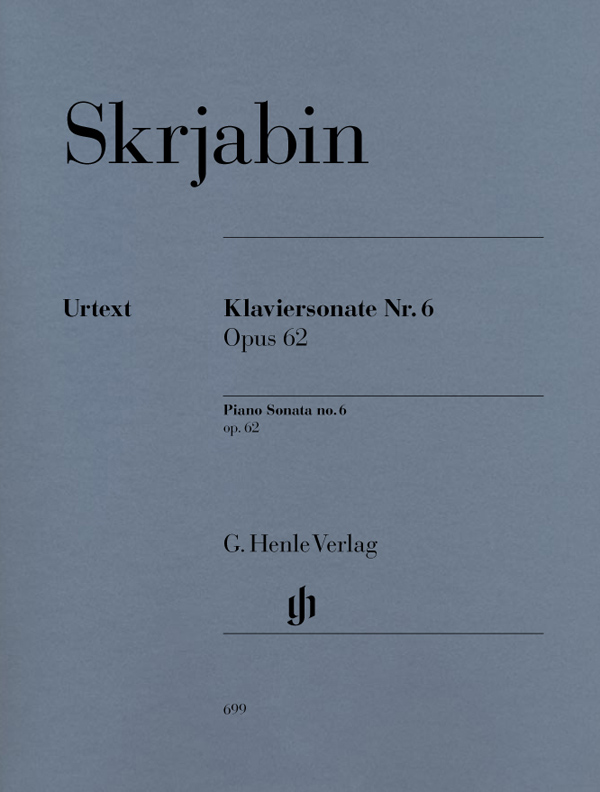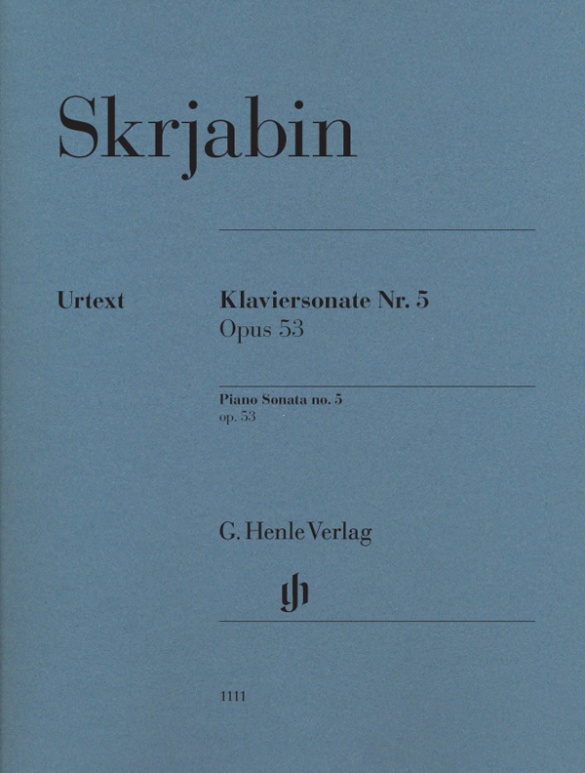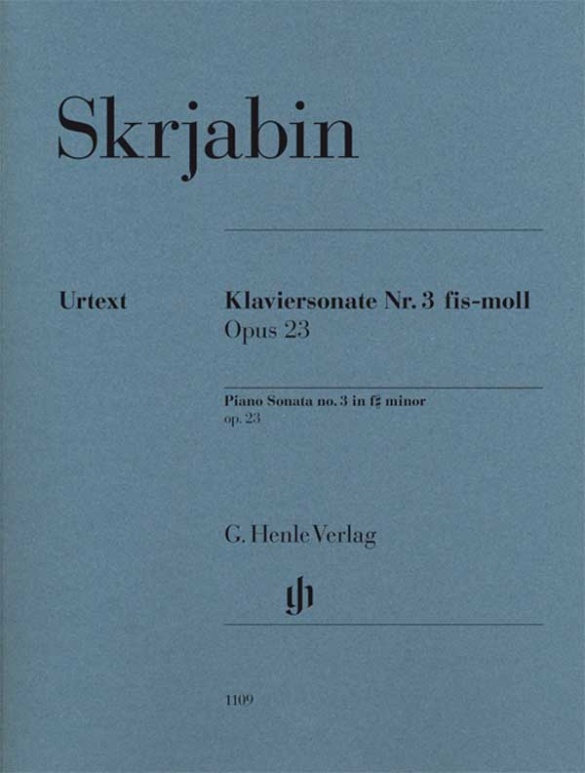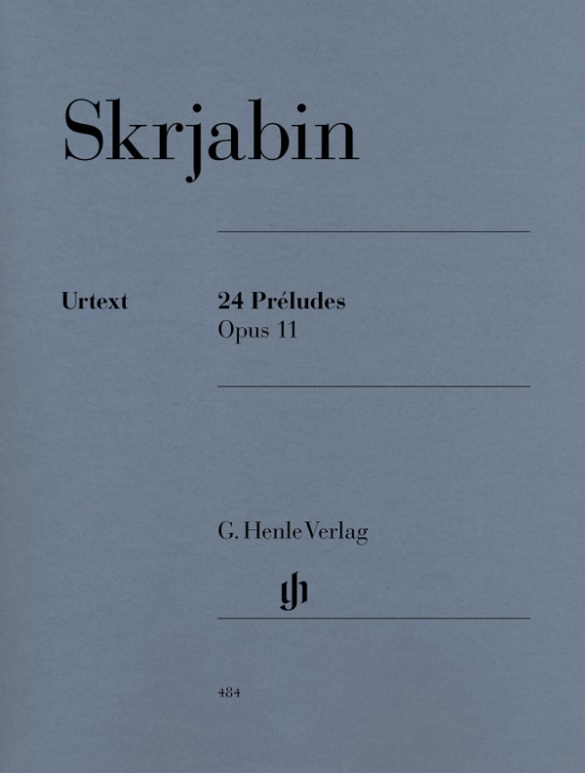

Alexander Scriabin
24 Préludes op. 11
Alexander Scriabin occupies a special position among the Russian piano composers around the turn of the 19th to the 20th century. Already in his early works, he went beyond the Chopinesque traditions of his contemporaries Glazunov and Rachmaninoff. As he also did in his innumerable preludes, of which he brought together 24 in his op. 11, allowing for each major and minor key. However, in spite of keeping to the strict order of the circle of fifths, he took care to ensure that “each prelude is a small composition which can exist self-contained, independent of the other preludes”. By comparing the autograph and the first edition of 1897, this Henle Urtext edition has corrected a number of errors and inaccuracies. A grandiose work which should belong in the repertoire of every pianist!
Content/Details
About the Composer
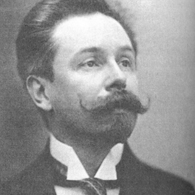
Alexander Skrjabin
Russian composer and pianist. The focal point of his oeuvre is his extremely unique piano music; in addition, he wrote important orchestral works.
| 1872 | Born in Moscow on January 6, the son of a pianist (his mother); she died in 1872. |
| 1888–92 | Piano studies at the Moscow Conservatory |
| 1888–96 | Twenty-four Preludes, Op. 11, containing all the hallmarks of Scriabin’s early period: broad, ornamental cantilenas underpinned by figurations and arpeggios in the style of Chopin, complex rhythmic structure from polyrhythms and syncopations. |
| 1892–1913 | Composition of ten piano sonatas. |
| 1896 | Travels to Paris, Vienna, Rome. |
| 1897 | Piano Concerto in F-sharp minor, Op. 20, in the style of Chopin. |
| 1897–1909/10 | He primarily composes orchestral pieces, including the major works “Le Poème de l’extase” (“The Poem of Ecstasy”) for large orchestra (1905–07), Op. 54, and “Prométhée ou Le Poème du feu” (“Prometheus or The Poem of Fire,” 1908–10); orientation toward Liszt and Wagner; programmatic music with occasional annotations in the musical score, incorporation of philosophical notions into his compositions, which are defined by various philosophical movements from around the turn of the century. Unusual intervals, harmonically at the edge of tonality. |
| 1899–1904 | Composition of his three symphonies, Opp. 26, 29, and 43. |
| 1904 | He resides in Switzerland. |
| 1906 | Invitation to the United States. |
| 1910 | Return to Russia. |
| 1908–10 | “Prométhée ou Le Poème du feu” for piano, orchestra, organ, choir, and clavier à lumière, Op. 60: enrichment of musical performance through plays of light. 1911–14, piano compositions, Opp. 61–74, with avant-garde harmonies. |
| 1913 | Beginning of the multisensory “Acte préalable” (“Prefatory Action”), which is never completed. |
| 1915 | Death in Moscow on April 27. |
About the Authors
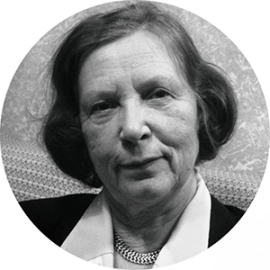
Valentina Rubcova (Editor)
Valentina Rubcova holds a doctorate in musicology, is editor-in-chief of the Moscow music publishing house “Muzyka – P. Jurgenson Publishing House” and deputy head of research at the Scriabin Memorial Museum Moscow.
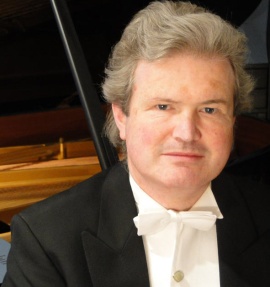
Michael Schneidt (Fingering)
Michael Schneidt, born in Munich, received his piano education at the Staatliche Hochschule für Musik und Theater in Munich, studying with Hugo Steurer and Klaus Schilde. He then completed his artistic state examination with distinction as well as his master-class diploma. He continued his education on a grant from the DAAD with Alessandro Specchi in Florence, also taking master-classes with Paul Badura-Skoda and Bruno Leonardo Gelber. Michael Schneidt has been a prize-winner at international piano competitions (1st prize Viotti-Valsesia, Italy), has done radio and TV broadcasts and also made CD recordings; he has also premiered many contemporary piano works. He has performed in Europe (e.g. at the Prague Spring International Music Festival and at the German Mozart Festival), in Japan and in South America.
Michael Schneidt is Professor of Piano at the Staatliche Hochschule für Musik und Theater in Munich. He has given master-classes in Germany, Switzerland, the Czech Republic and Japan, and is from time to time a member of the jury at music competitions.
Product Safety Informations (GPSR)

G. Henle Verlag
Here you can find the information about the manufacturer of the product.G. Henle Verlag e.K.
Forstenrieder Allee 122
81476 München
Germany
info@henle.de
www.henle.com
Valentina Rubcova konnte in der neuen Urtext-Ausgabe durch Quellenvergleiche des Autographs mit der Erstausgabe von 1897 eine in allen wesentlichen Punkten auf den Komponisten selber zurückgehende Fassung der "Préludes" vorlegen. Skrjabin schrieb insgesamt 16 Bände mit "Préludes". Die hier ausgewählten gehören sicherlich zu den bekanntesten.
Das MusikinstrumentVorzüglich edierter Urtext dieser frühen Kostbarkeiten Skrjabins. Inhalt: außergewöhnlich (5 Sterne)Druck: außergewöhnlich (5 Sterne)Layout: außergewöhnlich (5 Sterne)
Musik ManualSkrjabin was notoriously bad at checking his scores and the editorial commentary is necessarily long and typically thorough.
Sheet Music"Jedes Prélude ist eine kleine Kompositon, die selbständig, unabhängig von den anderen Préludes existieren kann". (Skrjabin)Ein grandioses Werk, das zum Repertoire eines guten Pianisten gehört!
Musikhandelrecommendations
autogenerated_cross_selling
Further editions of this title
Further editions of this title


